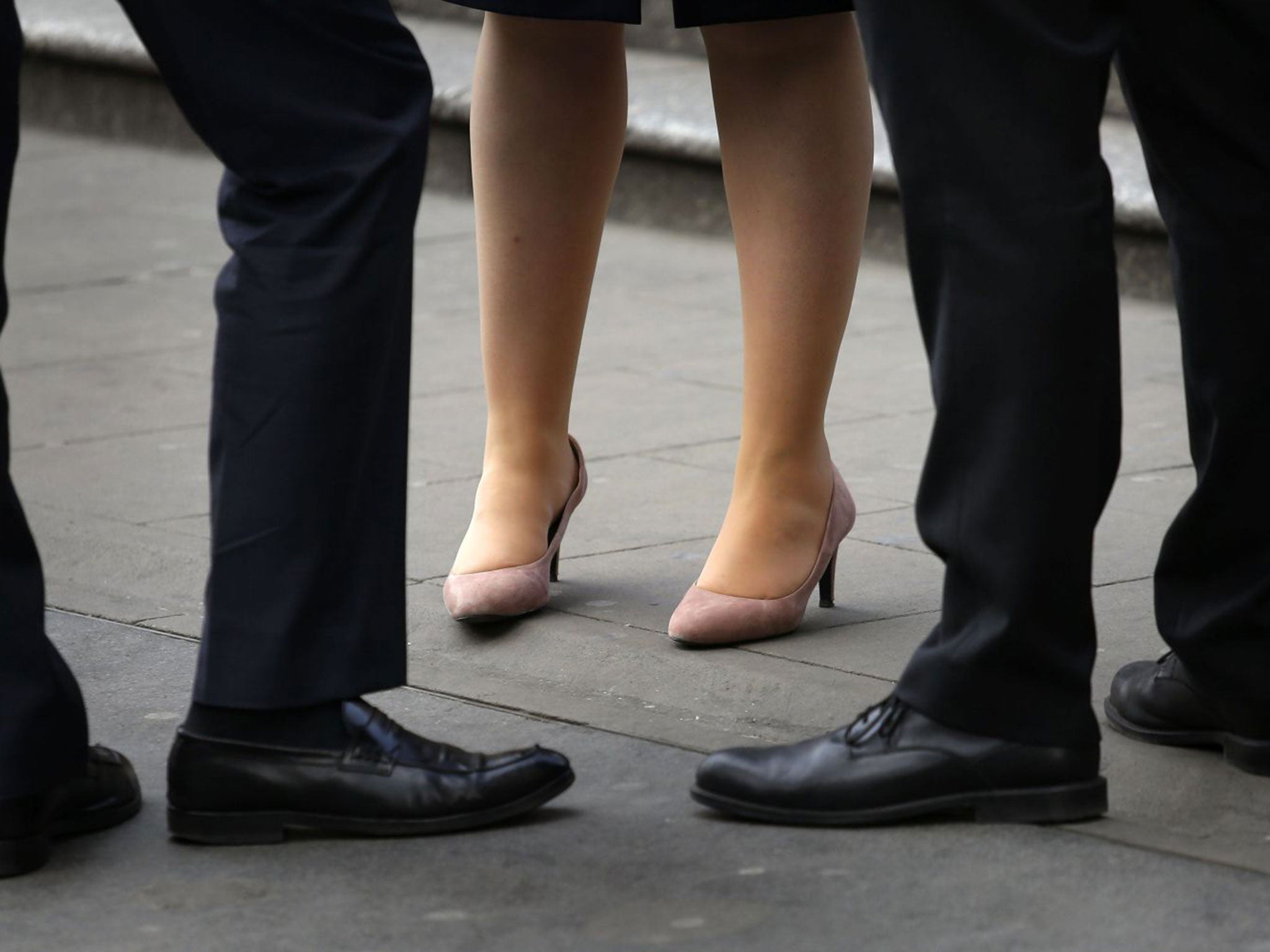High heels for women in workplace ‘occupationally necessary and appropriate’, says Japanese minister
Comments follow campaign challenging practice forcing women to wear heels

A Japanese government minister has provoked controversy for saying it is “socially accepted” and “occupationally necessary” for women to be made to wear high heels at work.
Takumi Nemoto, Japan’s health and labour minister, defended the controversial practice which has forced women to wear heels in Japanese offices for many years.
His comments came after a recent campaign challenged the practice – with more than 19,000 people in Japan signing a petition to ban the requirement.
Supporters have been tweeting the petition alongside the hashtag #KuToo in solidarity with the campaign – echoing the #MeToo movement against sexual assault and harassment. The slogan is a play on the Japanese words for shoes “kutsu” and pain “kutsuu”.
Speaking about the petition at a parliamentary committee on Wednesday, Mr Nemoto demurred on whether requiring women to wear high heels constituted an “abuse of power”.
“It is socially accepted as something that falls within the realm of being occupationally necessary and appropriate,” he said.
“Whether the employers’ requirement to wear high heels is an abuse of power or not depends on whether the requirement goes beyond the social understanding of what is necessary and appropriate.”
He was responding to Kanako Otsuji, a member of the opposition Constitutional Democratic Party of Japan, who said forcing women to wear high heels in the workplace is “outdated”. She emphasised that a dress code which only applies to women amounts to harassment.
The petition was started by Tokyo artist and writer Yumi Ishikawa after comments she made on Twitter went viral across the nation. She came up with the hashtag #KuToo in her tweets.
“I’m hoping to get rid of the custom that someday women have to wear heels and pumps at work,” she wrote in January.
An official at the Ministry of Health, Labour and Welfare’s equal-employment opportunity division said earlier that there were no plans to amend the laws around whether employers could require staff to wear particular shoes or clothes. There are currently no laws that constrain firms from regulating employees’ workwear.
Japan has recently found itself in the public eye for failing to recognise gender equality in the wake of the global #MeToo movement.
The issue of sexual harassment continues to be prevalent in the country. A recent survey of 1,000 working women found that 42.5 per cent had experienced sexual harassment and that more than 60 per cent did not report it.
Japan ranks bottom among the G7 countries for gender equality. A number of medical universities in the east Asian country last year admitted to meddling with entrance exam scores to deliberately put female applicants at a disadvantage.
Join our commenting forum
Join thought-provoking conversations, follow other Independent readers and see their replies
Comments
Bookmark popover
Removed from bookmarks